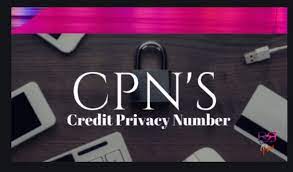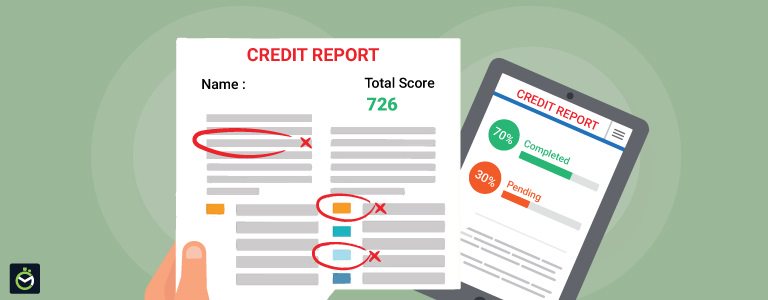Are you struggling with poor credit scores and you are aware of the plenty of challenges they can bring in?
A poor credit score can keep you from getting approved for a credit card or a car loan. It can make renting an apartment difficult. So when you see an ad promising to help you start over with a new credit history by getting a CPN, it may seem like the answer to your prayers.
But is it exactly? Let us know in detail.
What is credit privacy number (CPN)?
A credit privacy number, or CPN, is a nine-digit identifying number similar to a Social Security number (SSN) to protect your privacy on credit documents. A CPN is sometimes marketed to consumers with bad credit as a path to a fresh credit history. Companies offering CPNs say they can be used instead of a Social Security number on applications for credit. Sometimes CPNs are referred to as secondary credit numbers, or SCN numbers. Others may call them credit profile numbers.
Credit privacy numbers (CPNs) are touted by some credit repair companies as being a helpful way to disassociate yourself from your bad credit history and start fresh. Rather than using your Social Security number as your identifier for loan and credit card applications, you can supposedly use a nine-digit CPN to get approved.
The only problem? CPNs are not legal.
No federal agency recognizes them as a replacement for your Social Security number and using one can come with serious consequences. So how has this rumor persisted into our public consciousness?
The myth of CPNs starts with less-than-reputable credit repair companies offering individuals the chance to buy a new number for anywhere between $40 and $3,500.
Unfortunately, there is nothing legitimate about CPNs. Read on to find out exactly what you need to know so you can avoid being duped into paying for a clean slate that doesn’t exist.
Do credit bureaus authorize credit privacy numbers?
Not only does no federal agency authorize CPN numbers, neither do any of the three credit bureaus. It may seem like a great way to avoid dealing with your bad credit, but it’s little more than a scam.
In theory, using a new number to avoid your past credit history sounds like a great idea. But just like most other things, if it sounds too good to be true, then it probably is.
While it may be tempting to think that you can just pay your way out of bad credit, it takes a lot more than that. Repairing your credit takes time and effort, and oftentimes changing bad habits.
While certain credit repair companies claim that CPNs are government-issued numbers, they’re probably either completely made up or stolen Social Security numbers.
It could likely be that the CPN you pay for actually belongs to a child, senior citizen, or prisoner. This could lead to very serious repercussions if you do decide to carry forward and use a CPN in place of your Social Security number.
Is it safe to use a credit privacy number on a loan application?
Absolutely not. When you’re filling out a loan or credit card application and are asked for your social security number, that is the only number you should enter on the form.
The reason is quite serious: using a false Social Security number is a federal crime, as is lying on a credit card application. So those are potentially two separate charges if you get caught using a credit privacy number in place of your Social Security number.
At the federal level, the maximum penalty for identity theft is 15 years in prison, plus hefty fees and fines. You also might receive a separate sentence for identity theft at the state level, potentially adding more prison time and fines. If you’re dealing with the repercussions of bad credit, then you already have enough problems.
Luckily, they can be solved over time. When you’re convicted of a federal crime, on the other hand, you’re in a completely different world of trouble. Don’t risk it — use your own Social Security number each and every time you apply for credit, and in the meantime, work on repairing your credit score in an honest way.
What are some red flags about a credit repair company offering a CPN?
First of all, no reputable credit repair company should offer you a credit privacy number because they’re simply not legal. But in case things seem murky, here are a few other signals that it’s time to run as fast you can and find another place to help. A credit repair company should never ask you to lie about your credit history.
Additionally, they shouldn’t request payment for services before they’ve been completed. False promises should also cause a red flag to go up, such as the promise that you won’t have to deal with any of your past credit history if you move forward with them.
Finally, no one can guarantee that you’ll be approved for credit, no matter how good your credit is. If the company makes that promise to you, then there’s a fair chance they’re trying to scam you.
These tips aren’t meant to scare you out of working with a credit repair company. In fact, many credit repair companies do a spectacular job of helping people fix their bad credit. But it’s still wise to ask questions and be informed so that you don’t get suckered into a bad situation.
Can a CPN help protect against identity theft?
One of the potential merits of using a CPN is that it’s supposed to reduce the risk of identity theft. And while in a different world this might be true, it’s simply not an option for us today.
Your Social Security number carries along with it tons of personal identifying information like your address and purchase history. The more you use it, the more chances there are that it can be stolen, and it can be a massive headache if that happens.
An identity thief could file false tax returns under your name, or even claim any benefits you might be eligible for. So it makes sense that many people, even those without bad credit, could be attracted to using a CPN in place of their Social Security number.
Even without using a CPN, there are a number of ways to prevent identity theft. First, you should check all three of your credit reports each and every year. That way you’ll notice if any new accounts have been opened under your name without your authorization.
You can also place a freeze on your credit report so that creditors can’t pull your financial information until you’ve listed the freeze. This prevents identity theft when someone tries to apply for credit under your name but can’t get approved without a full credit check.
This is especially smart to do if you’ve been part of one of the many ongoing data breaches of major companies and websites, like Target or Anthem.
Can you use an employee identification number to get new credit?
Self-employed individuals typically get an employer identification number (or EIN) from the IRS to help identify their business taxes. It’s basically like a Social Security number for business owners. Unfortunately, an EIN is only to be used for tax reporting purposes, and can’t be used on personal credit applications.
Even when using your EIN for business credit purposes, the lender will still look at your personal credit history and take that information into account when evaluating your application.
An option in case you’re wary of putting your Social Security number on a credit card application, you can legally leave it off entirely. Your application will probably be rejected, but it might be worth a shot.
Some people also try to circumvent credit checks by getting added as an authorized user on someone else’s credit card. The risk of this move, however, runs in two directions.
The first is that in the event you charge up a lot of money and fail to make the payments, then your friend or relative who is the original cardholder will be saddled with your debt. If neither of you makes the payments, his or her credit will suffer just as much as yours does.
Even if you are an upstanding credit card user, there’s also the risk of having your credit destroyed if the main card user doesn’t make his or her payments. Both of your credit reports and scores become inextricably linked when you share a credit card.
When one of you makes consistent payments each month, both of your scores will rise. But if either one of you overspends or lets the account fall into delinquency, you’ll both equally suffer the financial consequences.
What is the right way to repair your credit?
When your credit is bad enough that you’re tempted to use a false Social Security number on new applications, you probably have at least a few items on your credit report that are worth disputing.
You can certainly try and do this yourself by contacting each creditor and trying to negotiate settlements and reports listings. But an alternative option is to work with a reputable credit repair company.
The best credit repair companies won’t give you shady offers like a credit privacy number. Instead, they’ll look strategically at each item on your credit report to see what can be fixed.
They can help you professionally deal with any number of negative items on your credit report, including charge-offs, collections, late payments, judgments, repossessions, tax liens, and more.
A good credit repair company knows the ins and outs of the law and work diligently on your behalf while making sure the creditor or collection agency is acting in a legal manner. Rather than risking a federal crime with a CPN, instead try fixing your credit with time-tested strategies that use the law in your favor.
Source: Lauren Ward [https://www.crediful.com]








